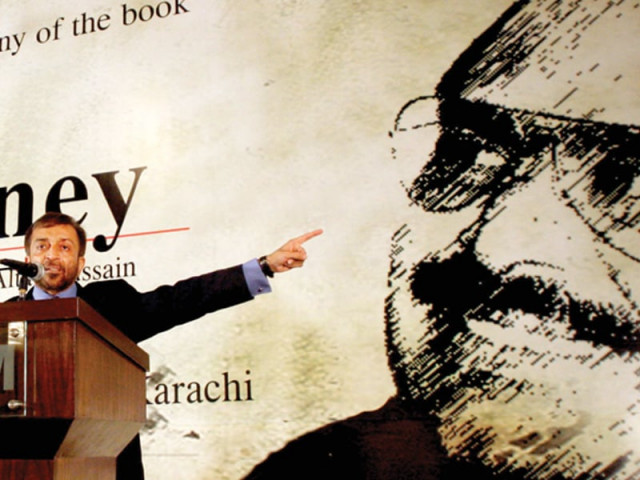From KU to UK: For an Urdu-speaking leader, an English biography opens his message to the world
Safar-e-Zindagi hits the bookstands as the translation of Altaf Hussain’s biography published in English.

From KU to UK: For an Urdu-speaking leader, an English biography opens his message to the world
In 1978, a young Karachi University student bought a 1969 Honda 50 motorcycle for Rs2,900. Few political parties are built on trusty steeds such as this one, but for the two-wheeler’s new owner Altaf Hussain, it was “more faithful than many humans”. Today, it was perhaps in part for that motorcycle that the word of that nascent political party was spread in Karachi. “Often it would carry me, along with two other companions, as late as 2 or 3 am, on the uneven roads of Korangi, or to Landhi, Malir, Drigh Road, New Karachi, and Orangi. Not only that, the three men riding it would be loaded with APMSO literature.” The irony is surely not lost on anyone - double or in this case triple sawari has its merits.
Today the owner of that motorcycle has become one of Pakistan’s most powerful political figures. And while he was not there in person, his presence was felt by the people who gathered at the Karachi launch for My Life’s Journey, Altaf Hussain’s biography on Saturday.
The book, published by Oxford University Press, is actually a translation of Safar-e-Zindagi, a long interview with Hussain conducted by journalist Khalid Athar. It was first published in Urdu daily Jang but is now accessible in English.
The book details the circumstances and events that led to the creation of the Muttahida Qaumi Movement from 1966 to 1988. And aside from the personal stories like that of the famous motorcycle, it also provides a fascinating insight into the mind of Altaf Hussain.
Post-colonial and South Asian Studies Assistant Prof. Matthew A Cook, who is with the North Carolina Central University, Durham, was one of the speakers at the launch. He has written the forward to the book, in which he dwells at length on the impact of the decision to shift the capital to Islamabad from Karachi among other elements intrinsic to Mohajir disenfranchisement.
The MQM’s Kunwar Khalid Younus spoke of how the book was a written script of the humiliation and insults that the Mohajir faced in the early days after Partition. TV journalist Agha Masood shed light on how in those days, former Field Marshal Ayub Khan’s son Gauhar Ayub had led a rally in Liaquatabad when Altaf Hussain was taking his mother somewhere in a rickshaw.
The driver refused to go ahead due to a rally. There was a commotion on the street so Hussain took his mother door to door seeking shelter. It was these incidents that had driven him to form the All Pakistan Mohajir Students Organisation (APMSO).
The MQM’s Dr Farooq Sattar highlighted how at the age of 25, Hussain had formed a political party, made him (Sattar) the youngest mayor of the world at the age of 28, made Dr Ishrat-ul Ebad the governor of Sindh at the age of 36 and made Syed Mustafa Kamal mayor of Karachi at the age of 33. If anyone wants to know the secret of becoming a leader at a young age, this is indeed the book to read.
Published in The Express Tribune, July 17th, 2011.



















COMMENTS
Comments are moderated and generally will be posted if they are on-topic and not abusive.
For more information, please see our Comments FAQ